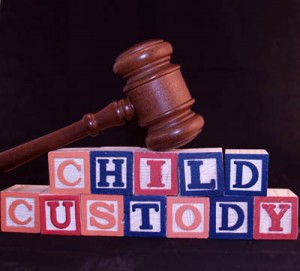 A mother had brought a proceeding in the Family Court requesting she be allowed to move with her children to Texas. The Family Court denied her application. She thereafter brought an appeal to the Appellate Division of the Third Department, an appeals court. She claimed the Family Court had applied an incorrect standard in rejecting her request to relocate herself and the children to Texas. She claimed the Family Court’s decision denying her relocation application on the ground she failed to show a sufficient change in circumstances to warrant this relocation was not the appropriate standard to be used by the Family Court in this proceeding. At the time of the trial in the Family Court, the mother testified she wanted to relocate to benefit from the economic and emotional support she would receive in Texas from her father and other members of her family who resided there.
A mother had brought a proceeding in the Family Court requesting she be allowed to move with her children to Texas. The Family Court denied her application. She thereafter brought an appeal to the Appellate Division of the Third Department, an appeals court. She claimed the Family Court had applied an incorrect standard in rejecting her request to relocate herself and the children to Texas. She claimed the Family Court’s decision denying her relocation application on the ground she failed to show a sufficient change in circumstances to warrant this relocation was not the appropriate standard to be used by the Family Court in this proceeding. At the time of the trial in the Family Court, the mother testified she wanted to relocate to benefit from the economic and emotional support she would receive in Texas from her father and other members of her family who resided there.
Father Fights Mother’s Relocation Application
The children’s father opposed the mother’s relocation application. He took the position it was a detrimental move to his relationship with the children.
The Appeal’s Court denied the mother’s application to relocate. They found the decision made by the Family Court was correct. They stated although no change in circumstances must be established to support a relocation petition, the mother had failed to show the relocation of the parties’ children to the State of Texas would be in their best interests. The Appeal’s Court considered all of the relevant factors with regard to the relocation of the children. They took into consideration this relocation would have a negative impact on the children’s well established relationship with their father and his family who reside in New York.
Conclusion
Father’s relationships with their children are important. Appeal’s Courts should not approve relocations which will destroy or have a negative impact on the father’s relationship with the children unless there is sufficient evidence to show the children will benefit from this relocation.


 An appeal was brought by a husband from a Supreme Court judgment ordering
An appeal was brought by a husband from a Supreme Court judgment ordering  When there are
When there are  This is a story about two young parents who had a daughter in 2003. Shortly after the daughter was born, the child’s mother agreed to have the maternal grandmother raise the child in Franklin County, New York. This gave the mother the opportunity to go away to college. While the mother was attending college, she visited her daughter sometimes on weekends, holidays, and on school vacations.
This is a story about two young parents who had a daughter in 2003. Shortly after the daughter was born, the child’s mother agreed to have the maternal grandmother raise the child in Franklin County, New York. This gave the mother the opportunity to go away to college. While the mother was attending college, she visited her daughter sometimes on weekends, holidays, and on school vacations.
 Elliot S. Schlissel is a
Elliot S. Schlissel is a  A father, J.M., sought
A father, J.M., sought  In a recent case before Justice Jeffrey Goodstein pending in a Supreme Court Divorce Part in Nassau County, New York, a husband sought a
In a recent case before Justice Jeffrey Goodstein pending in a Supreme Court Divorce Part in Nassau County, New York, a husband sought a 





